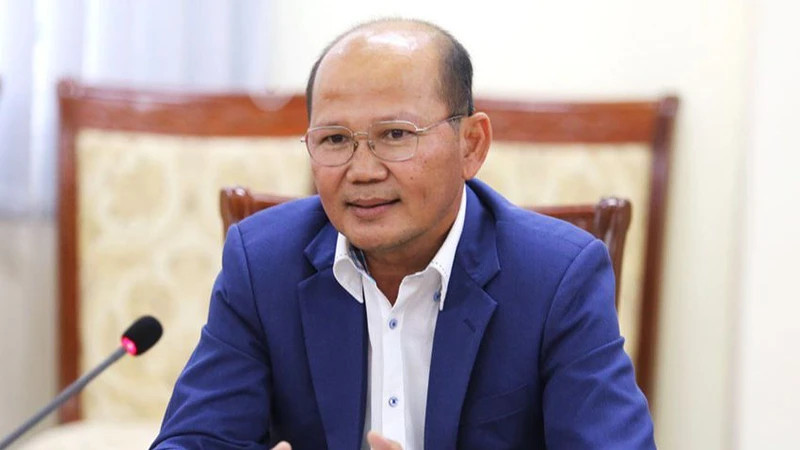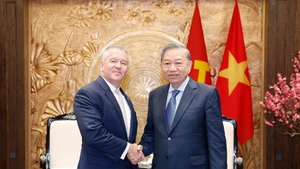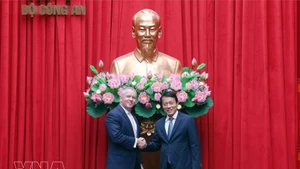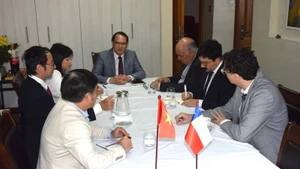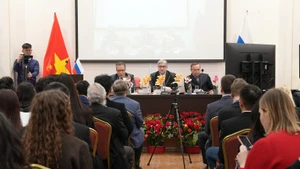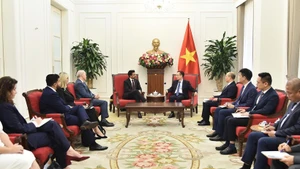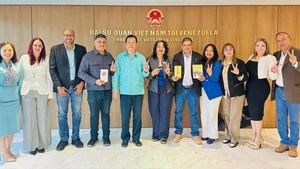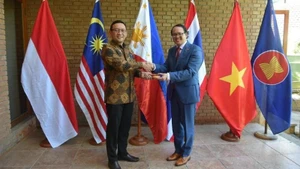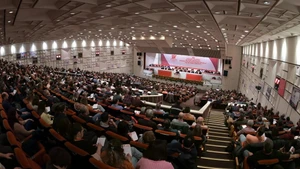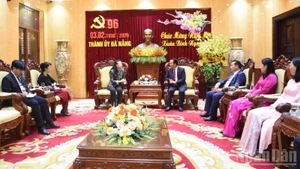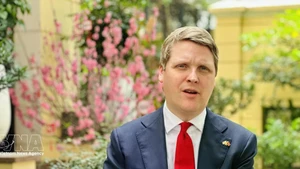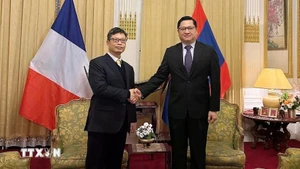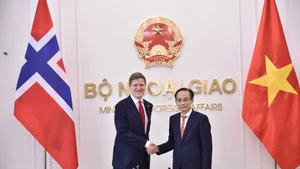In an interview with Nhan Dan Newspaper reporters, Uch Leang stated that Party leader Nguyen Phu Trong’s writings in the works entitled "Some Theoretical and Practical Issues on Socialism and the Path to Socialism in Vietnam" and "Building and developing a modern Vietnamese foreign policy and diplomacy imbued with identity of ‘Vietnamese bamboo’" are succinct and profound, reflecting a comprehensive vision across all aspects including politics, foreign affairs, security-defence, economics, and culture. They were written after a process of distilling and summarising practical experience with an authentic and scientific approach.
“What I highly appreciate is that these writings reflect the dedication of a leader and explain why Vietnam chooses to develop towards the path of socialism. Vietnam has achieved significant and historically meaningful accomplishments and developed more strongly and comprehensively compared to the years before the Doi Moi (Renewal) period. As the Party General Secretary said, Vietnam has never before had such potential, position, or prestige in the international arena as it does today.
Scholar Uch Leang emphasised that over the nearly four decades of conducting the cause of Doi Moi and executing the Party Platform for national construction during the transitional period to socialism, the theories about the renewal path, socialism, and the path to socialism in Vietnam have been being progressively refined and gradually realised.
In terms of the achievements Vietnam has made, in addition to the wise leadership of the Communist Party of Vietnam, the unity and joint efforts of all Vietnamese people, it is essential to mention the significant contributions from Vietnam’s diplomatic sector and the support from the international community.
“Vietnam has gradually integrated deeply and comprehensively with the region and the world, becoming a member of many regional and international organisations such as the United Nations (1977), ASEAN (1995), a non-permanent member of the UN Security Council for the 2020-2021 term, and a non-permanent member of the UN Human Rights Council for the 2023-2025 term. Vietnam has also actively participated in multilateral mechanisms and signed many important treaties and agreements with other countries.”
Regarding the diplomatic policy imbued with the “Vietnamese bamboo” identity, the scholar from the Royal Academy of Cambodia believes that the comprehensive, equal, and mutually beneficial cooperation with all countries has greatly contributed to Vietnam’s development achievements.
According to him, the great achievements of Vietnam are based on the unique diplomatic strategy in the Ho Chi Minh era, bearing the character of “Vietnamese bamboo” with “strong roots, solid stalks, and flexible branches”, embodying the spirit, character, and bravery of the Vietnamese people.
“Through studying the works of General Secretary Nguyen Phu Trong, it can be affirmed that Vietnam is steadfast on its path to socialism and continues to achieve many successes that bring great benefits to both its own country and neighbouring countries in the region, including Cambodia.”
From Cambodia, scholar Uch Leang shared his sincere wish that the Vietnamese people will continue achieving new accomplishments to soon realise the vision of becoming a socialist-oriented developed country by 2045, as set out by the Resolution of the 13th National Congress of the Communist Party of Vietnam.
